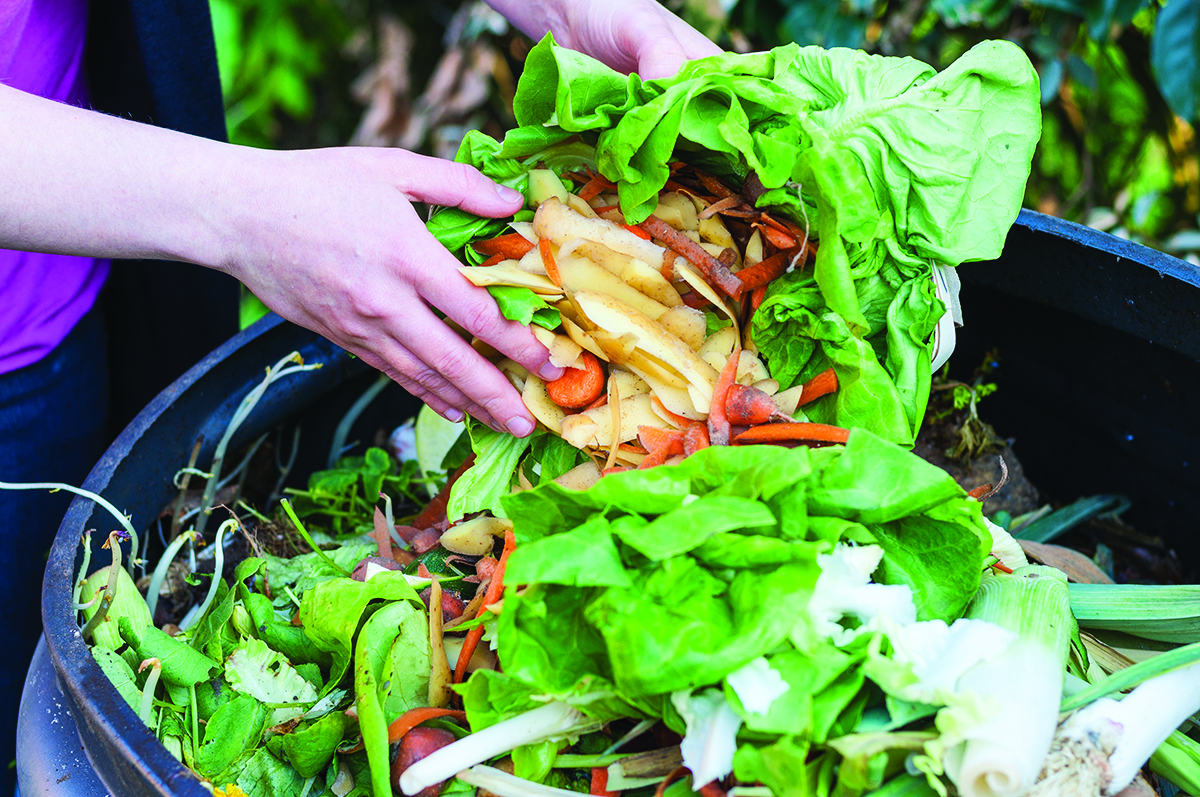It is easy to think that the food waste you throw in the garbage bin will go to the landfill and decompose into a nutrient-rich soil-like substance. After all, if we put food waste in a proper compost pile, that’s pretty much what it does.
However, that’s not what happens to food waste in a landfill environment, where it is almost always confined in plastic garbage bags, covered with other plastic garbage bags and then dirt. Without oxygen to help food waste breakdown in this environment, it produces methane, a much more potent greenhouse gas than carbon dioxide.
It is estimated that more than a third of all methane emissions in the United States come from landfills, with food waste being a major contributing factor.
Here are five ways to cut down on the amount of food waste you send to the landfill:
- Plan your meals and buy less — Some food waste never has a chance to leave the refrigerator or cupboard. We buy too many food ingredients and for any number of reasons, we don’t use it before it spoils. It often goes straight into the bin, and then to the landfill. Planning your family’s meals — and snacks — will reduce unnecessary purchases and the amount of food that spoils before use.
- Shop more frequently — Instead of doing a big shopping trip once a week, consider more frequent smaller shopping trips to buy just what you need for the next few days. In addition to reducing the amount of food that spoils, this approach will also maximise freshness and nutritional value of produce.
- Freeze leftovers or take them for lunch — Instead of letting leftovers sit in the refrigerator until they spoil and get thrown out, freeze them in reusable containers for a quick meal in the future, or take them for a delicious lunch the next day or two. For those who despise leftovers, consider reducing the size of your recipes so that there are no leftovers.
- Make soups —As a way of reducing food waste, an initiative called “Disco Soup” started in Germany in 2012 and has led to the internationally observed “World Disco Soup Day” every April. The idea behind the initiative is to get creative and use leftover food scraps to make nutritional soups.
- Start composting — In the right environment, a lot of your food waste will decompose into a usable soil additive. The key is to ensure your compost pile is exposed to the right amount of moisture and air. To learn more about the do’s and don’ts of composting, visit the Cayman Islands Department of Agriculture’s website to view the publication on the subject at doa.gov.ky.

